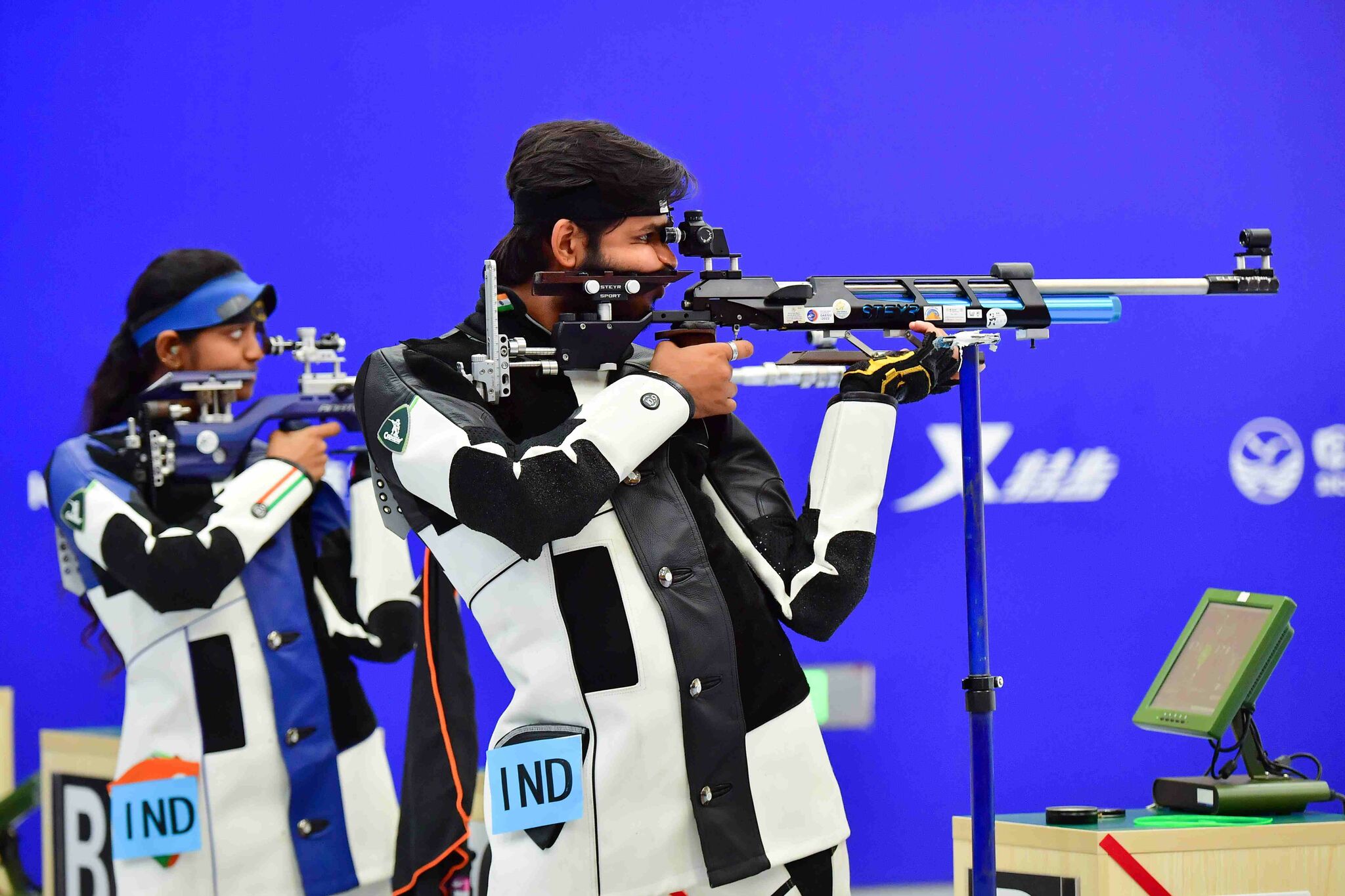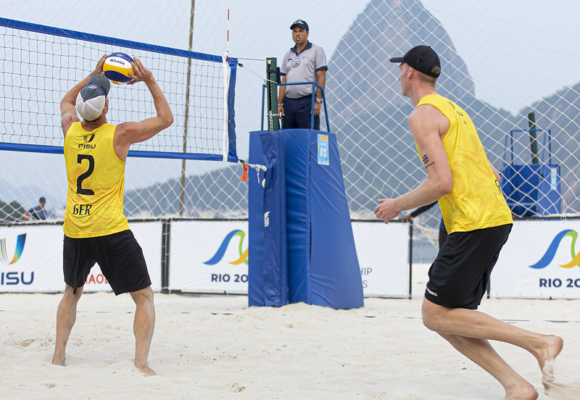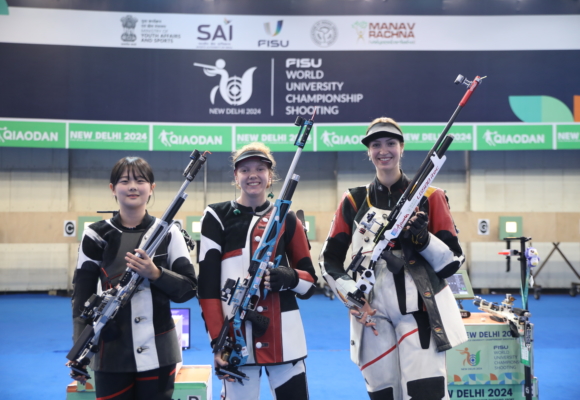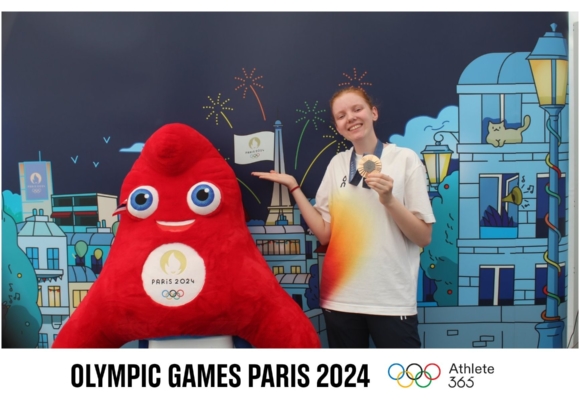India ended its campaign at the Chengdu FISU World University Games with 26 medals, including 11 gold, five silver and 10 bronze.
Why is that final tally meaningful? It easily surpasses the country’s combined total of 18 medals they had earned all time at the FISU Summer Games.
The world’s most populous nation earned more than half of its medals in a single sport, shooting, which accounted for 14 podium finishes, eight of them gold. Several team members claimed more than one medal in the discipline.
What made India stand out in shooting?
“I think the level of competition that the [FISU] Games has shown in the last few years has demanded the athletes to perform their best at every single competition,” said Elavenil Valarivan, who won gold in the women’s 10m air rifle event and silver in the 10m air rifle mixed team tournament alongside Divyansh Panwar.
Valarivan, a student from Gujarat University, claimed that the Indian shooting contingent’s consistency, trusting the process, and sticking to it to the end helped them win medals.
“This [increase in medals] is eventually the result of the effort the entire team has put in, no matter which competition we are playing. I think this is the ultimate result and the perseverance of the hard work,” added the 24-year-old.
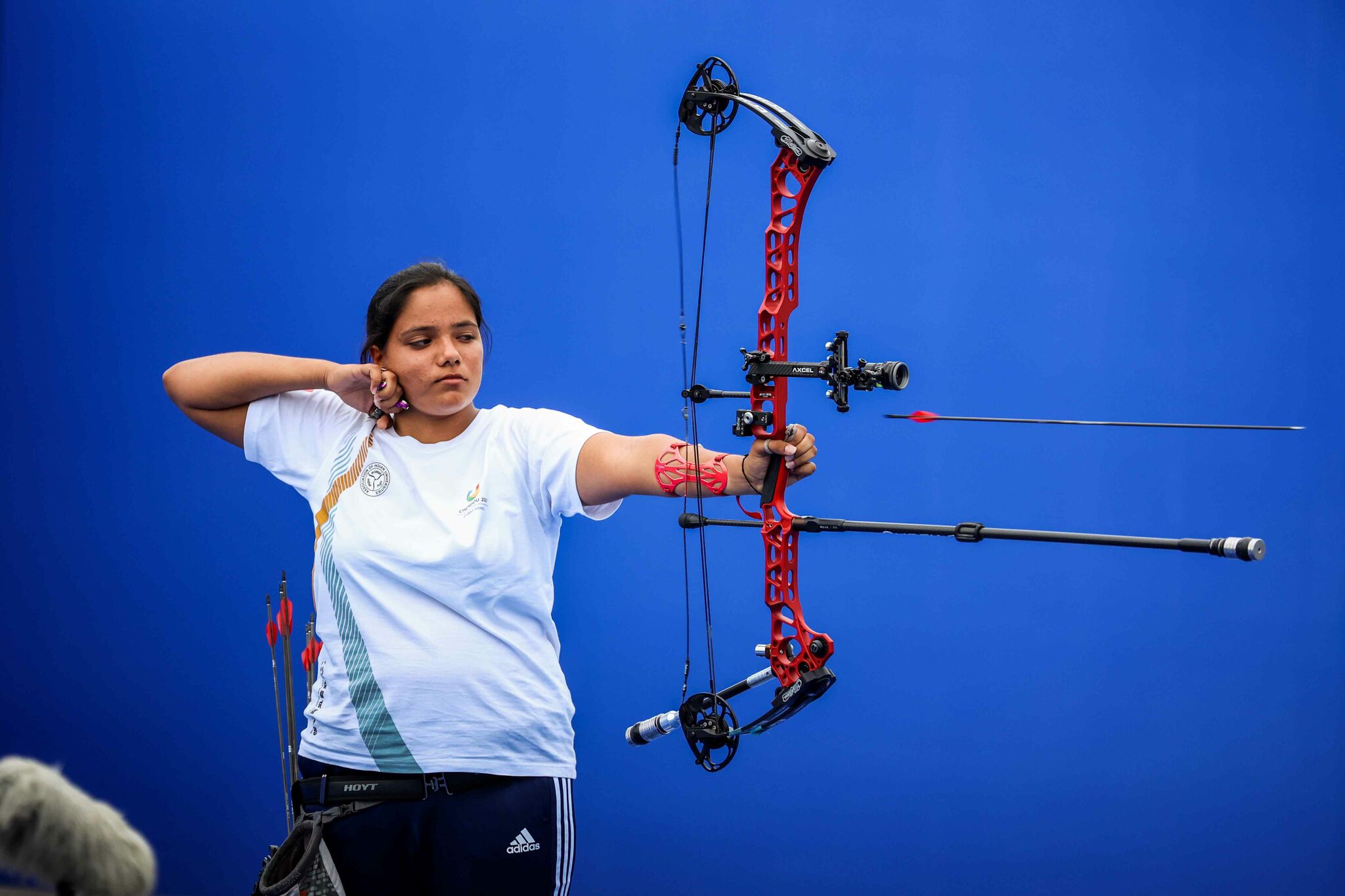
Avneet Kaur, gold medalist in women’s compound individualAnother sport in which Indians excelled was archery. The country’s compound archers won at least one medal in each event, while the women’s team added bronze in recurve.
This performance, however, did not entirely please Dr. Baljit Singh Sekhon, Joint Secretary (Sports), Association of Indian Universities (AIU), who felt that there were opportunities where India missed out on medals.
“We missed some medals in archery as some team members were taking part in the World Cup and missed [the FISU Games]. Otherwise, we could have also added more medals,” he said.
Dr. Baljit credited the sudden increase in medals in this edition to the selection transparency, coordination between the Sports Authority of India, involvement of various sports federations with AIU and, most importantly, a revision of policies.
There were three major policy changes, according to Dr. Baljit.
First, if an Indian studying abroad was unable to represent the country where they are studying due to their Indian passport, AIU will consider the athlete in its contingent.
“There was no existence of such mechanism until we changed it,” he said.
The second policy change concerned the student-athletes, who were a part of the Olympics training or were preparing for other events.
“AIU decided that the policy should bear in mind the players who were unable to make it to the trials due to other tournaments. The best players should not remain behind because of our selection policy.”
While Dr. Baljit agreed that AIU cannot run following the international sports calendar and vice versa, the scores of those athletes from the tournaments will be considered for the team selection.
In addition, the past performances of athletes would be included as the third policy revision, said the AIU Joint Secretary (Sports).
To improve its performance at the next FISU Summer Games, in 2025, Dr. Baljit indicated that a subcommittee has been formed to review the status of the current performance and the scope of improvement.
“We need to focus on conducting national camps after the trials, bring in more support staff, video analysts, psychologists and specialized physiotherapists.
“We also realized that, though shooting and archery did well, our expectations from athletics, judo and swimming were more. We feel that there is a lot of work left,” he concluded.
